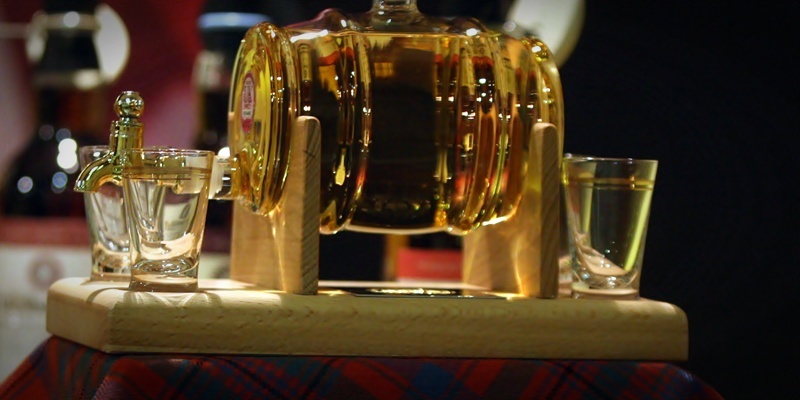The Scottish Government could sabotage the country’s greatest export, according to a leading whisky export.
Appropriately, on the day Scotland paid homage to its most famous exciseman, Rabbie Burns, St Andrews University researcher Dr David Wishart said the whisky industry could be set for a serious downturn if the bill which would impose a minimum price for alcohol was introduced.
Whisky is one of the great survivors of the recession and is bucking the global trend, according to Dr Wishart, the author of a new book on Scotland’s national dram.mi
As whisky drinkers around the world prepared to raise a glass to the birth of the bard with a tipple, Dr Wishart claimed that the new bill could adversely affect the booming Scotch whisky export industry, which he says should be protected.
Dr Wishart, who has researched the histories and profiled the whiskies of 100 distilleries throughout the UK, said: ”As we join hands to toast our national bard on Burns Night, it is perhaps worth recalling that, a year before his premature death from rheumatic fever, aged 37, Robert Burns was an exciseman collecting duties for the government. Burns might well reflect on the scale of excise duties on Scotch drink today.”
The researcher said that, regardless of the budget, the tax on alcoholic drinks was set to rise later this year. And if the Alcohol Mininimum Pricing Bill was passed at Holyrood, a bottle of blended Scotch whisky would rise by £3.50 in Scotland from this summer.
”Aside from the impact on the domestic market, where Scottish retailers will be seriously disadvantaged, it will give immense succor to several export markets when they come to review their duties on Scotch whisky,” he said.
According to the latest figures, exports of Scotch whisky increased by 22% last year to £3.5 billion, with Singapore exports rising by 64%, Brazil by 56%, and Taiwan 45%.
Dr Wishart said the bill will encourage increased taxation in importing countries.
”The minimum pricing policy allows foreign markets to review their import tariffs on Scotch whisky,” he said. ”For example, India, the world’s largest whisky market, adds a surcharge of 150% on all Scotch whisky imports.
”At a time when the EU is trying to re-negotiate this tariff, the Indian line is: if your government can surcharge your whisky, then so can we. It’s a massive shot in the foot for our most successful industry.
”Scotch whisky is our top export, with sales up 22% last year, helping to meet the Scottish Government’s goal to increase Scottish exports by 50% by 2017.
”Business is booming abroad. But what does our Scottish Government do for Scotch whisky, our most successful exporting industry? Tax it at home, thus inviting swingeing taxes abroad.”
Dr Wishart published the first book to compare and classify single malt whiskies by flavour in 2002. A decade later, his book Whisky Classified is recognised as the definitive guide to tasting malt whisky.
Already published in eight languages, including Portuguese for the booming Brazilian market, a new 2012 edition will be launched worldwide next month.
The St Andrews academic, who is also a Keeper of the Quaich for the Scotch Whisky Industry, added: ”Scotch whisky is the top export from Scotland, with distilleries being reopened and newly built from Annan to Elgin to Lewis.
”Our industry, which currently employs 40,000 directly and many more indirectly, could be set for a serious downturn.”
